Sweat Myths Debunked: Separating Fact from Fiction About Hyperhidrosis
Debunking the Most Common Myths About Sweating, or Hyperhidrosis
 Excessive sweating, or hyperhidrosis, affects millions of people, but myths and misconceptions about sweating often make it difficult to understand this condition and how to manage it effectively. While sweating is a natural body function, misinformation can lead to confusion about health, fitness, and skincare. In this blog, we will debunk some of the most common myths about sweating and hyperhidrosis, providing clarity and empowering you with the right information.
Excessive sweating, or hyperhidrosis, affects millions of people, but myths and misconceptions about sweating often make it difficult to understand this condition and how to manage it effectively. While sweating is a natural body function, misinformation can lead to confusion about health, fitness, and skincare. In this blog, we will debunk some of the most common myths about sweating and hyperhidrosis, providing clarity and empowering you with the right information.
Excessive Sweating Can Be Controlled - Learn Ways Below!

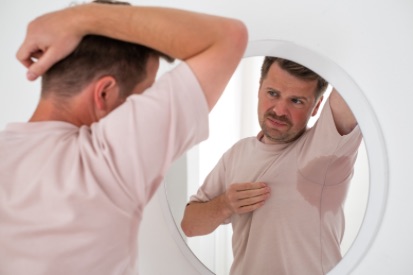

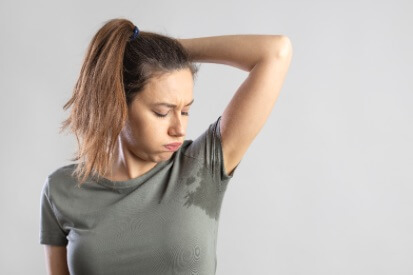

Myth #1: Sweating More Means Better Detoxification
One of the most widespread myths is that sweating heavily helps "detox" the body by eliminating toxins. However, this isn't how detoxification works. The primary role of sweat glands is to regulate body temperature—not to flush out harmful substances. The liver and kidneys are responsible for processing and eliminating toxins, while sweat is made up of water, electrolytes, and trace amounts of minerals.
While saunas and exercise may promote relaxation and healthy blood circulation, the idea that more sweat equals better detox is a myth. If you're experiencing excessive sweating due to hyperhidrosis, it doesn’t mean your body is "extra clean"; it means your sweat glands are overactive.
Myth #2: People with Hyperhidrosis Just Need to Use Stronger Deodorants
Many people confuse deodorants with antiperspirants, assuming both serve the same purpose. Deodorants mask odor but do not stop sweat production. Antiperspirants, on the other hand, contain aluminum-based compounds that block sweat ducts and reduce perspiration. However, for people with hyperhidrosis, over-the-counter antiperspirants may not be effective enough.
For those with excessive sweating, prescription antiperspirants, Botox injections, or advanced treatments such as iontophoresis or microwave therapy (miraDry) may be needed. Consulting with a dermatologist can help determine the best course of action.
Myth 3: Sweating Is Always a Sign of Good Fitness Levels
The truth: Sweat production varies based on multiple factors, not just fitness.
Many people believe that heavy sweating during exercise is a sign of peak fitness. While it’s true that people who exercise regularly may sweat more efficiently—because their bodies have adapted to cool down faster—fitness isn’t the only factor at play. Sweat levels are influenced by genetics, temperature, humidity, and individual physiology. Some people sweat excessively even during minimal physical exertion due to hyperhidrosis, while others may sweat very little, regardless of their fitness levels.
If you struggle with excessive sweating that interferes with daily activities, it’s important to consult a healthcare provider, even if you are in good shape. Sweating too much doesn’t necessarily mean you’re fitter; it could point to an underlying medical condition.
Myth #4: Only Heat or Exercise Triggers Excessive Sweating
The truth: People with hyperhidrosis can sweat even in cool environments.
A common misconception is that sweating happens only in response to heat or physical activity. However, people with primary hyperhidrosis often experience excessive sweating regardless of external temperature. It can occur in air-conditioned rooms, during moments of rest, or even while sleeping.
Hyperhidrosis usually affects specific areas, such as the hands, feet, face, or underarms, and may be triggered by stress, anxiety, or other emotional factors. For individuals with secondary hyperhidrosis—where sweating is caused by another medical condition—factors such as medications, infections, or hormonal imbalances can also play a role.
Myth 5: Drinking More Water Makes You Sweat Less
The truth: While hydration is essential, drinking water doesn’t reduce sweat production.
It’s important to stay hydrated, especially if you sweat a lot, but drinking more water will not decrease how much you sweat. Hydration helps maintain electrolyte balance and ensures your body functions properly, but it does not directly affect your sweat glands. In fact, staying hydrated only ensures that your body has the fluids necessary to produce sweat and keep you cool.
If you experience excessive sweating, focus on managing triggers and exploring treatment options rather than relying on hydration alone. Dermatologists can provide solutions such as topical medications, oral treatments, or advanced procedures to help control sweat production.
Examples of Hyperhidrosis
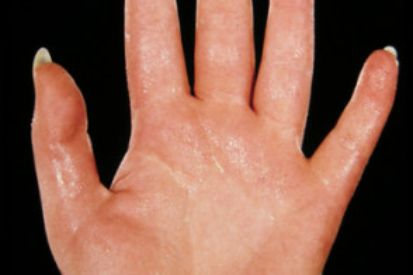
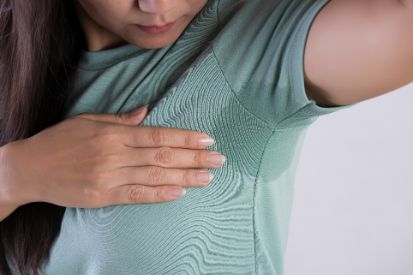
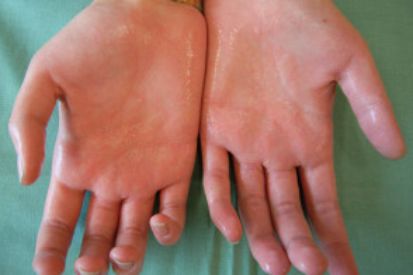
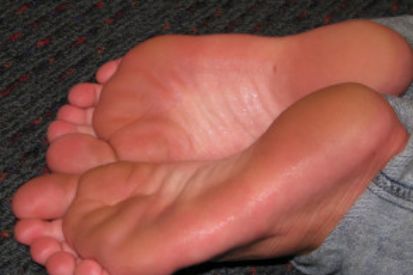
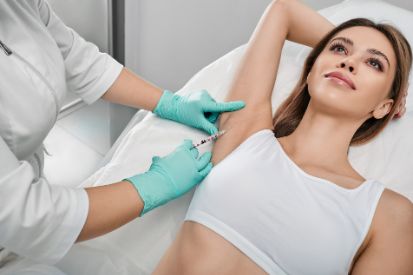
Myth #6: Excessive Sweating Is Just an Inconvenience—It’s Not a Medical Issue
The truth: Hyperhidrosis is a medical condition that can significantly impact quality of life.
Many people dismiss excessive sweating as a minor annoyance, but hyperhidrosis can have a serious impact on mental, emotional, and social well-being. It can lead to embarrassment, social isolation, and even anxiety or depression. Individuals with hyperhidrosis often struggle with practical issues, such as frequently changing clothes, avoiding handshakes, and dealing with ruined fabrics or shoes.
Fortunately, hyperhidrosis is a recognized medical condition with various treatment options available. Seeking professional care can improve quality of life by reducing symptoms and restoring confidence.
Final Thoughts: Getting the Facts Straight About Hyperhidrosis
Understanding the truth about sweating and hyperhidrosis is essential for both those affected and the people around them. Sweating is a normal bodily function, but excessive sweating is not something that people have to live with without support. By separating myths from facts, individuals can make informed decisions about their health, seek proper treatment, and reduce the stigma associated with hyperhidrosis.
If excessive sweating interferes with your daily life, speak with a dermatologist to explore personalized treatment options. Whether through clinical treatments or lifestyle adjustments, there are solutions available to help you regain control and confidence. Remember: It’s not just sweat—it’s your well-being.
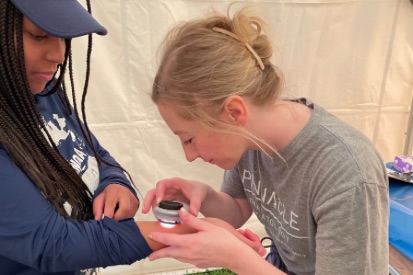
Schedule An Appointment & Relieve Your Excessive Sweating
Find a location nearest you and schedule online today.
Featured Blogs
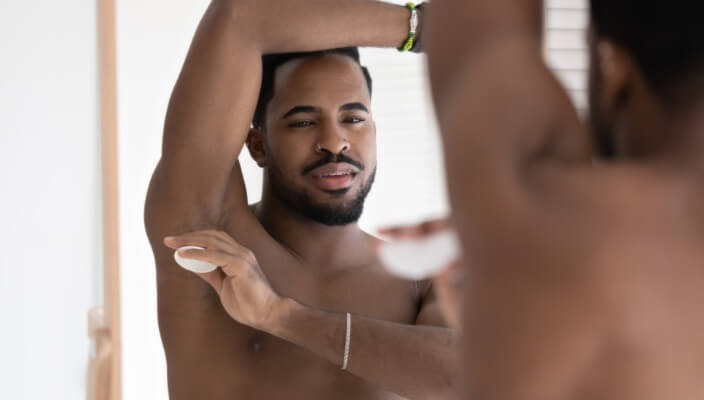
- General Dermatology
- Cosmetic Treatments
There’s nothing discrete about excessive armpit sweating. And with the obvious wet or sweat-stained clothing and worrisome body odor, it’s easy to feel uncomfortable, frustrated, and embarrassed.
Read More
- Cosmetic Treatments
Living with embarrassing underarm sweat stains? miraDry® is a simple, safe, and non-invasive cosmetic procedure that permanently eliminates underarm sweat glands for good.
Read More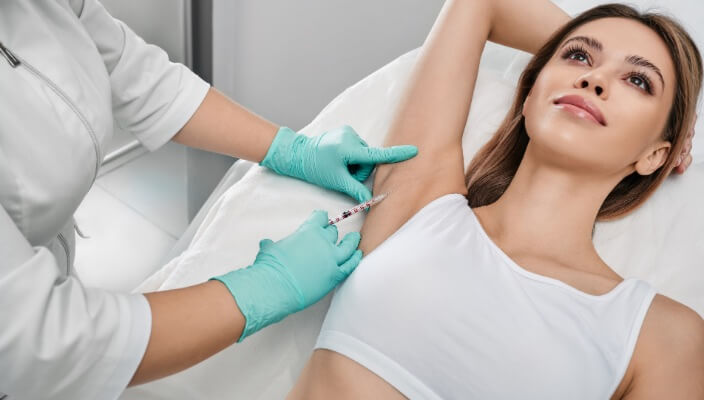
- General Dermatology
While sweating, our body’s natural cooling system helps regulate our internal temperature, too much of a good thing can lead to serious skin issues.
Read More


